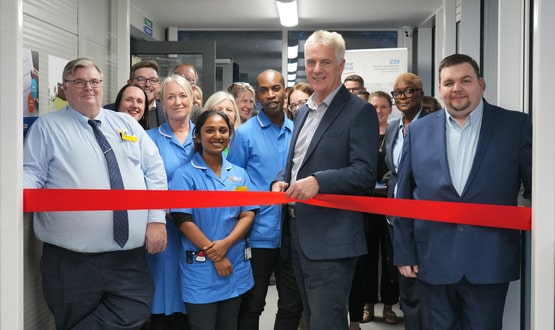Norfolk and Norwich introduces new tech for ovarian cancer patients
- 20 February 2023

New technology that monitors patient’s blood pressure during surgery has been used for cytoreductive surgery at Norfolk and Norwich University Hospitals NHS Foundation Trust and is reducing the length of hospital stays.
The haemodynamic monitor looks at the patient’s blood pressure during surgery for ovarian cancer, to provide detailed information about their heart function to the theatre team. It also helps teams to give more targeted fluid therapy during surgery.
The technology monitors arterial blood pressure beat-by-beat and from these values is able to calculate in-depth haemodynamic levels. This allows clinicians to accurately assess a patient’s condition, optimise fluid therapy and deliver appropriate treatment.
With the introduction of the device, Norfolk and Norwich has been able to reduce patient stays in critical care from an average of three days to just one day, while overall hospital stays have reduced from 10 days to six.
With reduced hospital stays it also means patients who require chemotherapy can start their treatment sooner, improving survival chances.
Consultant anaesthetist Rocio Ochoa-Ferraro tested the Mostcare Up device from Vygon. She said: “I was not going to buy a £50,000 machine if it was not going to improve care of my patients, but it did. Care was massively improved, and this monitor is key to developing our therapy for ovarian cancer patients.”
The trust were able to achieve a 100% reduction in respiratory or renal complications following the surgical procedure, by better monitoring of fluid levels.
Ochoa-Ferraro said: “Before using the monitor our fluid therapy involved giving medication during the procedure to manage blood pressure, with the monitor we can give better fluid levels which reduces the need for more medication.”
Norfolk and Norwich has made a number of recent tech-driven improvements. In October it introduced new virtual reality (VR) films for dementia education, while the same month it implemented digital solutions to support personalised follow-up pathways.




